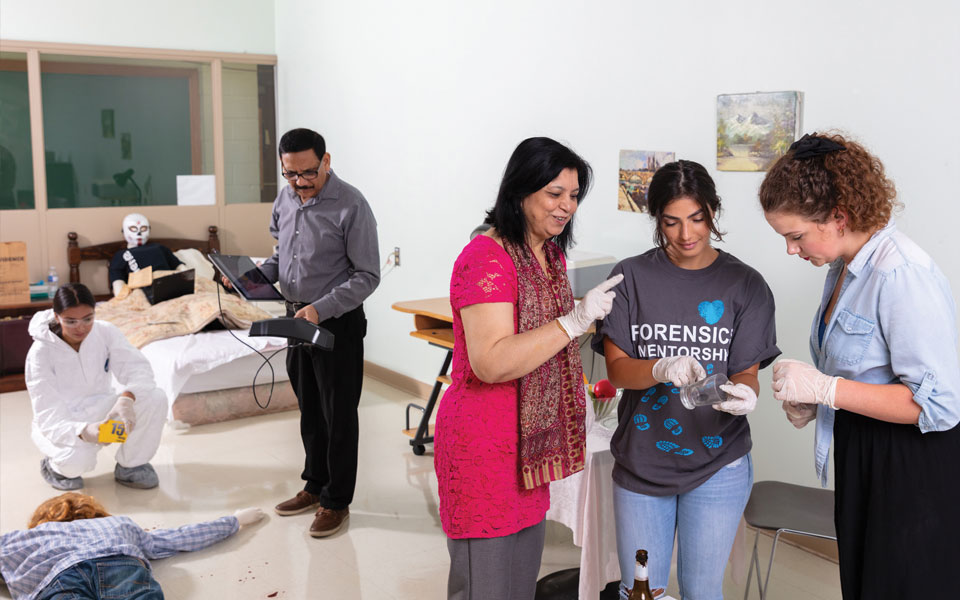
Program Overview & Highlights
- Honours 4-Year Program
- BFS
Deepen your understanding of crime scenes and forensic analysis. Take criminology courses and gain more knowledge of the criminal justice system. Learn from leading experts and gain the degree needed to accelerate your career.
Our professors conduct forensic casework and incorporate real-life experiences into their teaching. We supplement your classroom learning with mock crime scenes and labs to provide work-place simulations. You’ll get training in scientific techniques and crime scene investigation from a variety of professionals, including academics, forensic practitioners, police, lawyers, and expert witnesses.
An Ontario first! Students with previous college studies in Police Foundations with satisfactory grades can obtain Advanced Standing in this applied forensic science stream.
Learn More About Our Program
Admission Requirements
High School Student from Canada
Course Requirements: Advanced Functions/MHF4U, Chemistry/SCH4U, Biology/SBI4U. English/ENG4U.
Strongly Recommended: Physics/SPH4U
Recommended: Calculus & Vectors/MCV4U
Minimum Average: 70% (70% average of all required science and math courses.)
Mean Average: 85%
High School Student from Outside Canada and the United States (International)
Course Requirements: Grade 12 Advanced Functions, Grade 12 Chemistry, Grade 12 Biology. Grade 12 English.
Strongly Recommended: Grade 12 Physics
Recommended: Grade 12 Calculus & Vectors
Minimum Average: 70% (70% average of all required science and math courses.)
Mean Average: 85%
Language Requirements
To review the most up-to-date information on Language Requirements: See language requirements.
Academic Calendars
Career Tracks
- Forensic biologist/chemist
- surveillance specialist
- lab technician
- crime scene officer
- pathology assistant
